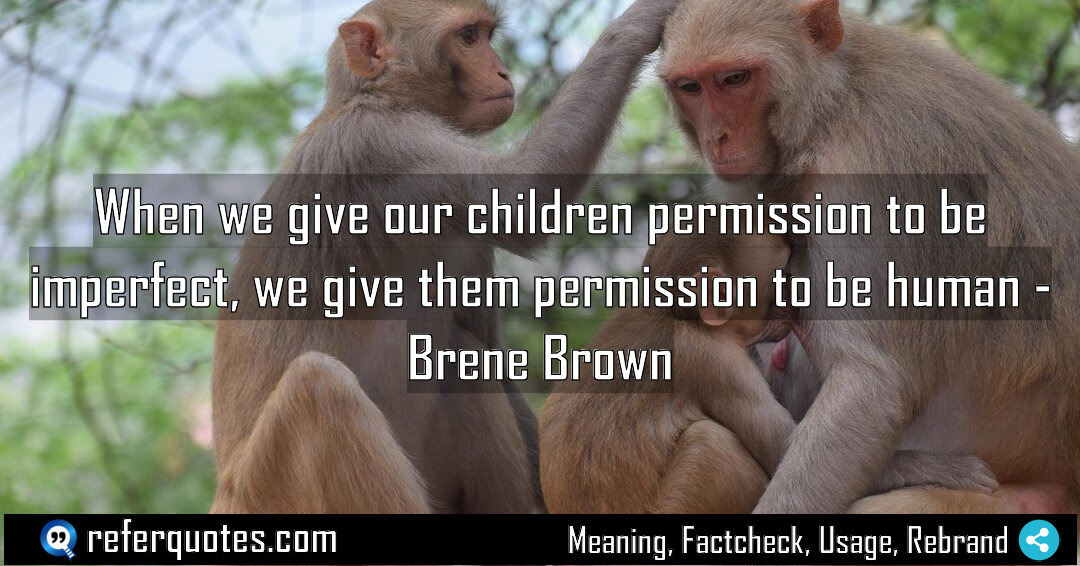When we give our children permission to be imperfect, we’re essentially handing them the key to authentic self-worth. It’s a game-changing perspective that shifts the focus from performance to personhood. This single idea can fundamentally change your family’s emotional landscape.
Share Image Quote:Table of Contents
Meaning
The core message is that by accepting our children’s flaws, we validate their fundamental humanity and free them from the tyranny of perfectionism.
Explanation
Look, here’s the thing I’ve seen over and over. When we obsess over our kids getting every answer right, winning every game, being the best… we’re not building resilience. We’re building a facade. This quote is about dismantling that performance-based identity. It’s saying, “Hey, you are worthy before you achieve anything.” And that’s a radical act of love. It gives them the courage to try, to fail, and to get back up without their self-concept shattering. It’s the foundation for true courage and compassion, for themselves and for others.
Quote Summary
| Context | Attributes |
|---|---|
| Original Language | English (3668) |
| Category | Personal Development (697) |
| Topics | growth (413), imperfection (16) |
| Literary Style | affirmative (75), simple (291) |
| Emotion / Mood | gentle (183) |
| Overall Quote Score | 87 (185) |
Origin & Factcheck
This is straight from Brené Brown’s work, specifically her 2013 audiobook “The Gifts of Imperfect Parenting.” It’s a cornerstone of her research on vulnerability and shame. You sometimes see it misattributed to general parenting experts, but the language and the concept are pure Brené—it’s all about how embracing our own imperfections is the first step to letting our kids off the hook, too.
Attribution Summary
| Context | Attributes |
|---|---|
| Author | Brene Brown (257) |
| Source Type | Book (4032) |
| Source/Book Name | The Gifts of Imperfect Parenting: Raising Children with Courage, Compassion, and Connection (35) |
| Origin Timeperiod | 21st Century (1892) |
| Original Language | English (3668) |
| Authenticity | Verified (4032) |
Author Bio
Dr Brene Brown is the author of books such as Daring Greatly and The Power of Vulnerability. The TED talk and Netflix production based on her research reached out to millions of audience. She researches effects of courage and vulnerability in shaping people's work and relationships. She leads the Brené Brown Education and Research Group and provides evidence-based insights into practical tools to help people train themselves
Official Website |Facebook | X | Instagram | YouTube |
Where is this quotation located?
| Quotation | When we give our children permission to be imperfect, we give them permission to be human |
| Book Details | Publication Year/Date: 2013; ISBN/Unique Identifier: 978-1611801053; Last edition: 1st Edition (Sounds True, 2013). Number of pages: 160. |
| Where is it? | Approximate page from 2013 edition, Chapter: Permission to Be Human |
